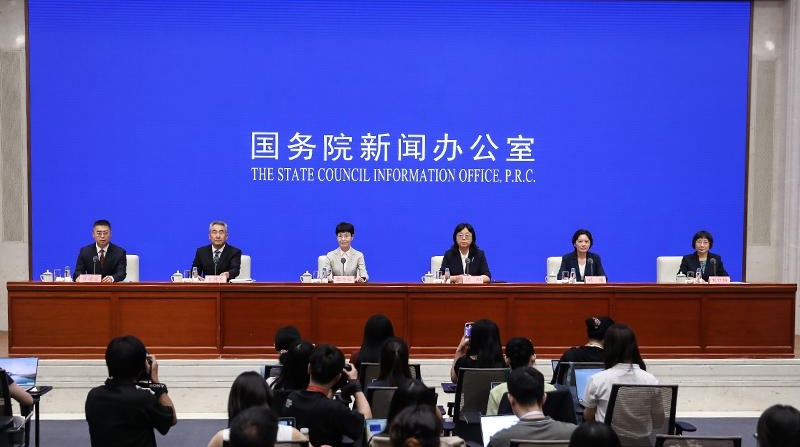National Business Daily:
Previously, some localities in China explored providing child care subsidies, but most only targeted second and third children, leaving families with only one child unable to benefit. What was the consideration for including firstborns in the national subsidy program? Thank you.
Guo Yanhong:
Thank you for your question. Mr. Wang will answer this.
Wang Haidong:
Thank you for your question. In recent years, some places have experimented with child care subsidies, accumulating a lot of experience and providing useful references for the formulation of the national child care subsidy system. Overall, these local policies are in the preliminary exploration stage, and most didn't include first children in the subsidy coverage. During the research and development process for the national child care subsidy system, we worked with relevant departments to conduct in-depth research and sought broad feedback on issues such as who should be eligible for subsidies. There was a broad consensus that support for families with only one child should be strengthened.
The decision to include first-borns in the national child care subsidy system was based on two main considerations: First, families with one child constitute the majority. More than half of all births each year are first children. Therefore, by including them in the subsidy scope, we can ensure broad coverage and maximize the number of families that can benefit from the child care subsidy system. Second, having a child is a major milestone for any family. Having a first child is the beginning and foundation of a family's childbearing journey and represents a critical stage that particularly needs support. Providing child care subsidies for first children can improve a family's childbearing experience, reduce child care pressures and encourage families to consider having more children. Thank you.
Zhou Jianshe:
Today's press conference is hereby concluded. Thank you to our speakers and to all the journalists. Goodbye.
Translated and edited by Li Xiao, Yan Bin, Zhang Jiaqi, Ma Yujia, Liu Caiyi, Li Congrong, Yang Chuanli, Wang Qian, Fan Junmei, Li Huiru, David Ball, and Jay Birbeck. In case of any discrepancy between the English and Chinese texts, the Chinese version is deemed to prevail.


 Share:
Share: 




 京公网安备 11010802027341号
京公网安备 11010802027341号